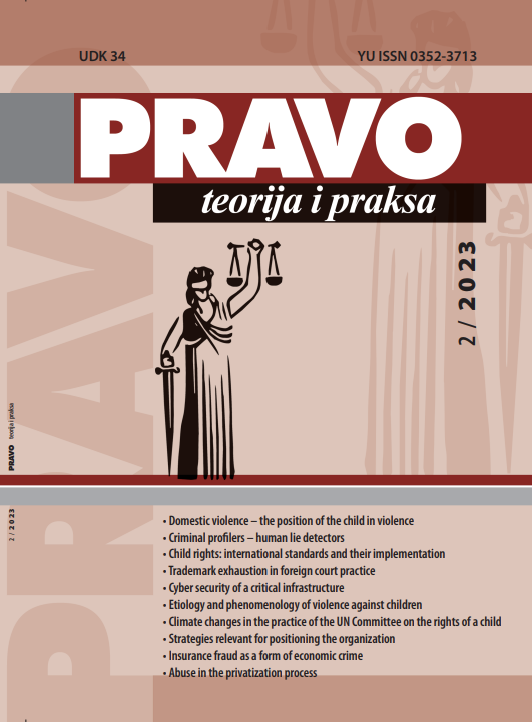CHILD RIGHTS – INTERNATIONAL STANDARDS AND THEIR IMPLEMENTATION IN THE LEGAL SYSTEM OF REPUBLIC OF SERBIA
CHILD RIGHTS – INTERNATIONAL STANDARDS AND THEIR IMPLEMENTATION IN THE LEGAL SYSTEM OF REPUBLIC OF SERBIA
Author(s): Darko Golić, Dejan LogarusicSubject(s): Administrative Law
Published by: Pravni fakultet za privredu i pravosuđe u Novom Sadu
Keywords: child rights; international standards; national standards; the Convention on the Rights of the Child; the Draft Law on the Rights of the Child
Summary/Abstract: As a necessary consequence of the strengthening of human rights, there appears the idea and movement of the existence of the child rights separated from the human rights. These are the rights which will pull out the child from the grip of the powers not only of the state, but also of the parents, and will allow the child to be viewed as a separate human being, with his/her own rights, his/her own identity, integrity and dignity. This idea will be spread so much by the end of the twentieth century that it will lead to significant phenomena and changes at the international level. Normative activity within the United Nations has never produced such a result as the UN Convention on the Rights of the Child. An almost universally accepted legally binding document has, in an extremely short period of time, set fairly high uniform standards of children’s rights at the global level. We will see that the domestic legislator did not follow the tendencies of the international community to a sufficient extent, so it was only in 2019 he took certain political steps to correct the given situation, but without sincere desire or strong will enough to complete the procedure. In contrast to the universal level where the child rights de facto codified in the UN Convention on the Rights of the Child, at the national level they remain fragmented, with many gaps recognized by the domestic public authorities.
Journal: Pravo teorija i praksa
- Issue Year: 40/2023
- Issue No: 2
- Page Range: 34-56
- Page Count: 23
- Language: English

